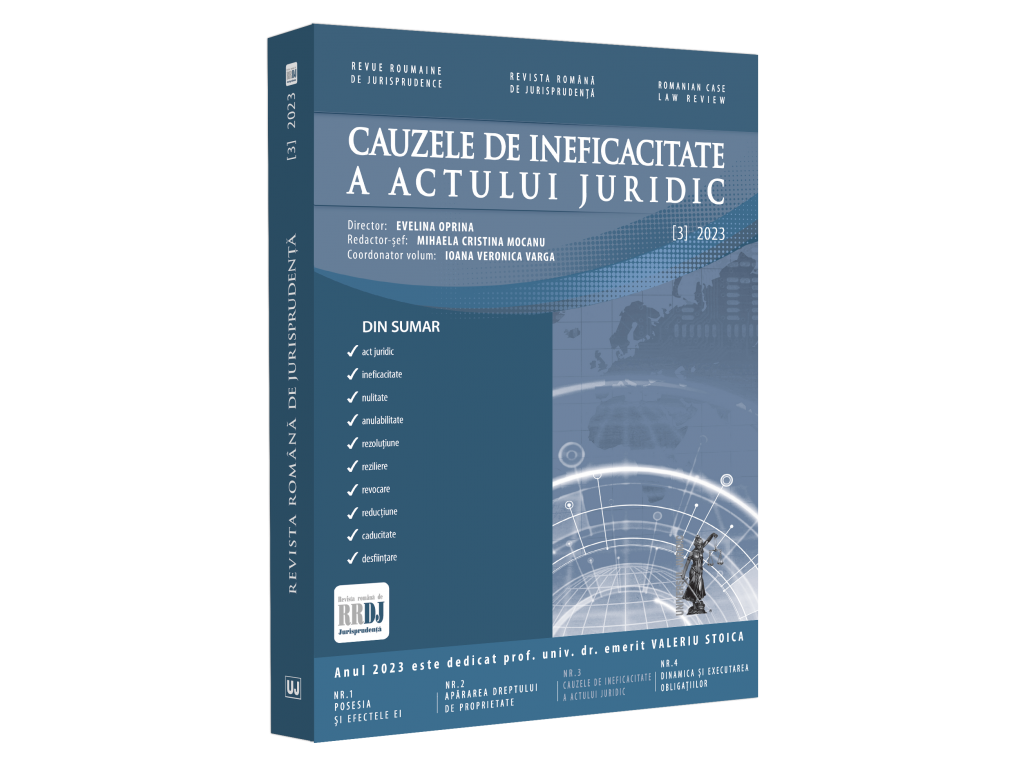The enforced execution of a monetary obligation established generically in the content of the enforceable title (final court decision) against the professional debtor and the inconveniences of its enforcement by the consumer creditor. Case Study
DEZBATERI
Abstract
The sources of a civil obligation can be multiple: legal, contractual or judicial.
From a judicial perspective, the obligation to pay an amount of money established in the enforcement title is presented in two forms of manifestation: (i) by the generic indication of the payment obligation, and (ii) by mentioning the concrete amount of the payment amount. In both situations, the creditor's claim in money is certain, liquid and enforceable. In the first hypothesis, the claim is determinable (at least), the amounts being calculated by the bailiff in the execution procedure.
In the second one, the claim is determined, in both cases the liquidity requirement is satisfied.
In such a circumstance, the difficulties and complications of the prompt and effective realization of the creditor's claim can be amplified by the hostile and bad faith attitude of the debtor pursued forcibly in the enforcement procedure, doubled by the superficiality and even complicity of some enforcement courts called to verifies the legality of the start of forced execution by the creditor – simultaneously or consecutively –, for the prompt and effective recovery of the title claim.
Controversies on this topic take on a special dimension when the litigious legal relationship (enforcement litigation) is between a consumer (creditor in the enforceable title) and a professional (debtor), context in which the (maximum protection of) the consumer it must also cover the phase of enforcement of a court decision declaring the absolute nullity of some abusive clauses and ordering – to the responsibility of the guilty professional – the restitution of the sums improperly collected following the use of these clauses.
It is undesirable that the practice of some enforcement courts that encourages the professional debtor's non-compliance with payment and his persistence in using abusive clauses, through the arbitrary interpretation of the considerations and the device of the enforceable title, contrary to the final court decision given in the procedure for clarifying the enforceable title, placing the consumer creditor in an extremely difficult situation in
the full and prompt capitalization of his rights stemming from an enforceable title represented by a final court decision.
Equally debatable is the resistance of some execution courts to the prompt, effective and full realization of the consumer creditor's claim, in the case of simultaneous or successive forced executions triggered by him for the optimal realization of his right to claim.
Keywords: enforceable title regarding a monetary obligation generically ordered to be returned, derived from the use of abusive clauses inserted by the professional in a consumer credit contract; simultaneous or consecutive enforcement of the enforceable title (final court decision); the interference of the execution courts called to verify the legality and validity of the forced execution in extending the execution procedure.








